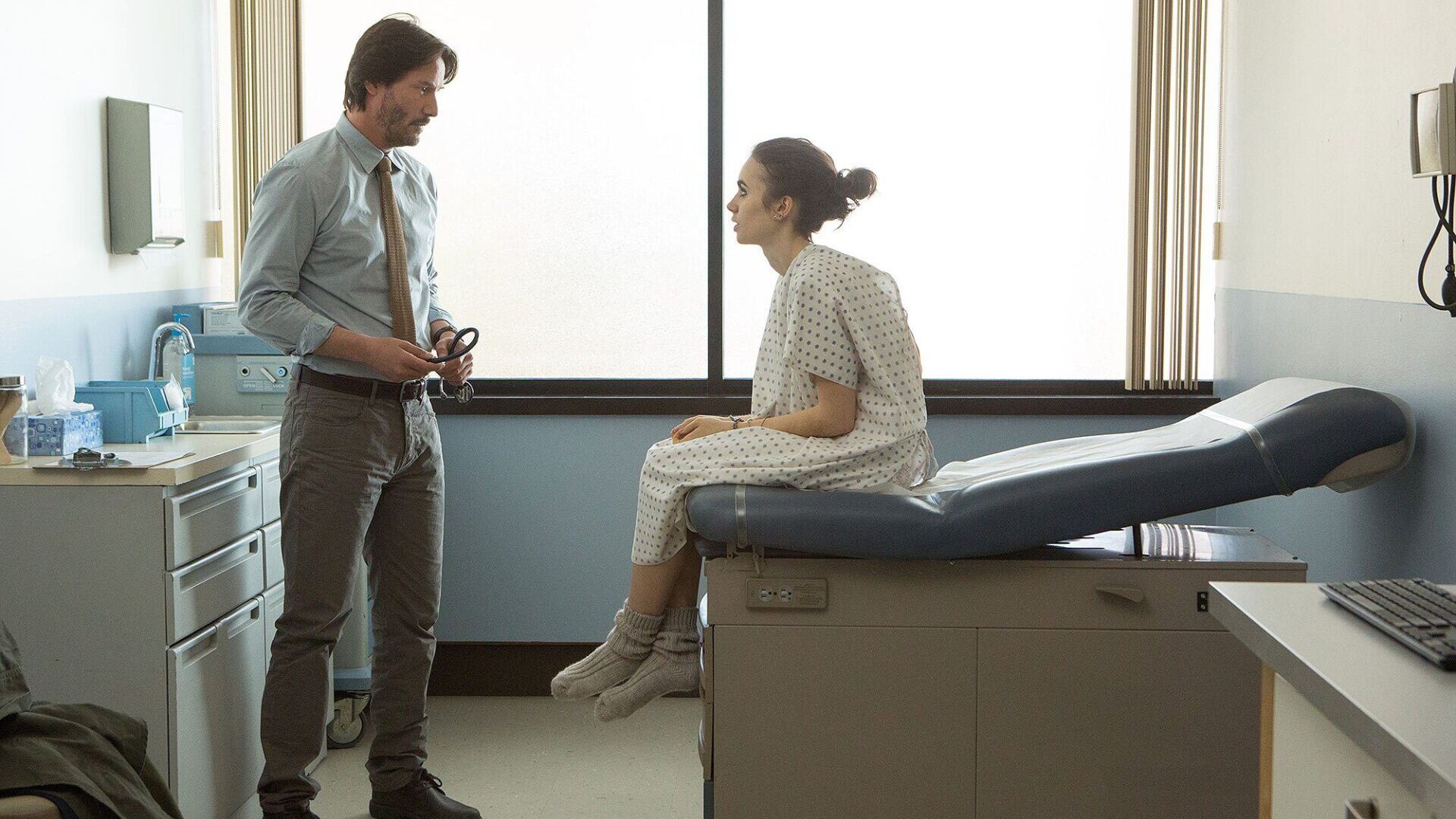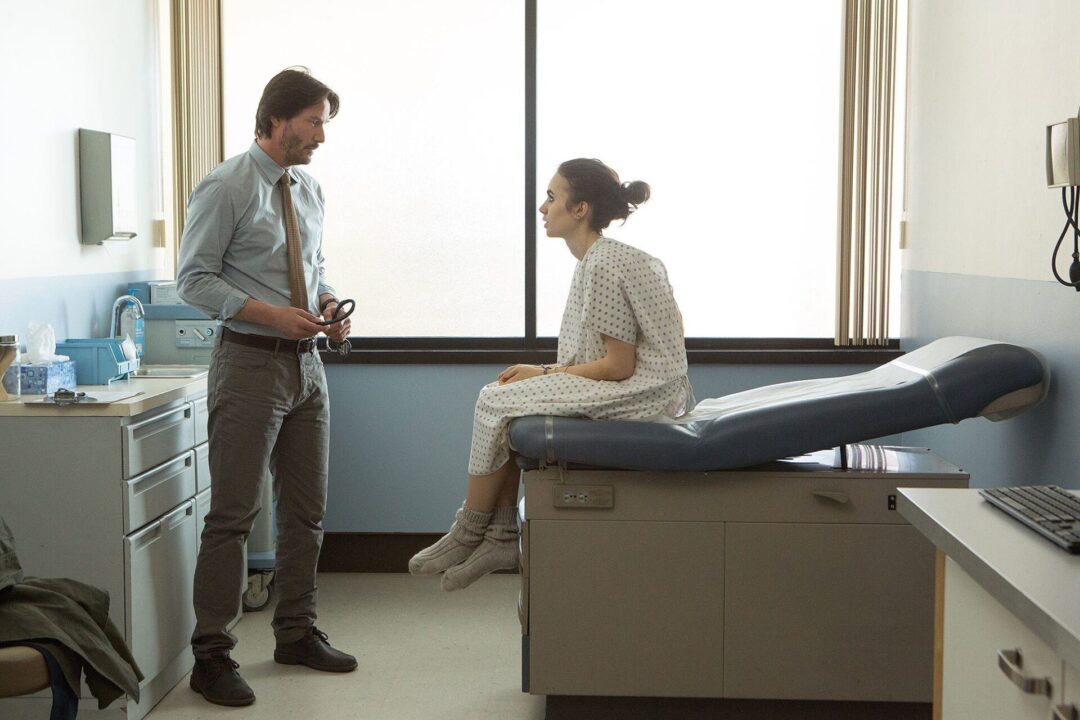At Sundance, this “Buffy” writer’s directorial debut argues a young woman’s story of living through anorexia deserves attention as much as the story of being a jazz drummer with a real mean teacher. Netflix agrees and buys it for $8 million. There is much rejoicing.
Marti Noxon is a television visionary, but you probably haven’t heard of her. She shaped two of television’s modern classics, “Buffy the Vampire Slayer” and “Mad Men,” as a screenwriter and producer. She even stepped in as showrunner for “Buffy’s” controversial, ambitious final seasons, while creator Joss Whedon split his time between “Buffy,” “Angel,” and “Firefly.” As if that weren’t enough history-making, she also pit-stopped in Shondaland with “Grey’s Anatomy” and “Private Practice,” and the Ryan Murphy-verse with “Glee.”
I bring up her illustrious TV resume not only because she’s a force to be recognized, but because her debut feature film, “To The Bone,” resembles television in the best possible ways. It’s character-driven, limber in its’ movement between comedy and tragedy, and concerned with giving everyone an inner life beyond the moment.
The story is as follows: Ellen (Lily Collins) is a 20-year-old artist suffering from anorexia. She has dropped out of school and is shuffled between treatment programs. None have worked. So, with exhaustion, Ellen agrees to undergo treatment with an unconventional doctor, played with stern warmth by Keanu Reeves. Reeves’ Dr. Beckham believes in bringing sick young people out of sterile medical centers and into a California bungalow (with the thought that bringing them closer to the world will convince them they can live in it fully again). You may now feel a building skepticism about another film where sick, smart-mouthed teens deal with existential questions and benefit from the guidance of a cool mentor. However, Noxon and her team are the perfect, passionate crew for telling this story with authenticity and charm. And that achievement begins with the fully realized protagonist.
We meet Ellen in a stasis. Fearing her past and unwilling to build a future, Ellen worries she’s moved from personhood to burden-hood in the minds of her family, and herself. And she’s not wrong in that others struggle to cope with her illness. Her mother moves out of state. Her sister’s high school milestones are tinged with anxiety, as dances and exams alternate with hospital admittances. Her father prefers to leave her under the watch of her cheery step-mother, who presumes to diagnose Ellen at every turn. Is her anorexia the result of her parent’s divorce? Latent lesbianism? Her stepmother’s offensive attempts to solve the disease, plus her very white suburban doting, (she bakes a goofy cake shaped like cheeseburger and fries) bring dark comedy to the film. They also reveal the frustrating treatment that shapes Ellen’s world-weary outlook.
“To The Bone’s” dive into mental health is weighty but did I mention it’s also very funny? There are frank jokes about masturbation! There’s cute flirting! There’s a drawing of a pregnant unicorn! Are you not yet entertained?
However, the great achievement of the film is that no character is solely a type or a mockery. Ellen’s step-mom is an insensitive goof, but she’s only trying to make meaning of a cruel illness. Meanwhile, Ellen proves perceptive about the hollowness of the schmaltzy messages offered to those questioning their will to live, but struggles to face the severity of her own illness. She downplays her talents and isolates herself. Ellen is smart and sympathetic, but, and this is key, the film wisely avoids romanticizing her appearance or mindset.
Lily Collins gives a lovely performance but when the camera is trained on her body it maintains a clinical gaze. In an industry that praises, and often demands, that women make themselves small, Noxon’s film employs costumes, lighting, and a body double to show us life-threatening weight loss. Likewise, as we enjoy the frequent laugh out loud dialogue, Noxon and Collins carefully remind us that same wit can heel-turn into a biting, outward expression of Ellen’s own self-hate. For instance, in one excellent bit of physical humor, a friend of Ellen’s performs an inspired, “When Harry Met Sally” style sexual encounter with a chocolate bar. Ellen laughs along before snapping when she realizes that even this moment among friends can’t break her compulsive calorie control. This is a very responsible film. It’s also a reminder of the necessity of giving artists the freedom to tell their own story.
Marti Noxon and Lily Collins both were once young women with eating disorders, and Noxon’s script includes autobiographical details. The material is elevated by the specificity both bring to the table. For instance, in one insightful scene, Ellen, coming down from a good day on a field trip with her fellow patients, reflects on what it feels like to have a beautiful moment amidst mental illness. She explains that she knows life and small joys are possible, but that acknowledging that can bring searing pain. Collins delivery, and Marti’s writing and direction, explore the contradictions inherent in mental illness. Those with anxiety or depression can see with clarity the ways their thoughts and actions are self-harming. Yet, this clarity feels difficult to manage. Without help, taking a clear-eyed look at one’s illness can deepen the disappointment of being unable to make an instantaneous recovery.
“To The Bone’s” dive into mental health is weighty but did I mention it’s also very funny? There are frank jokes about masturbation! There’s cute flirting! There’s a drawing of a pregnant unicorn! Are you not yet entertained?
“To the Bone” is a masterclass in taking a deeply felt, personal story and dramatizing it into a stylish, strange, and powerful film. It’s a moving exploration of a disease that affects millions and is often misjudged as vanity rather than a true illness deserving of treatment. It’s unafraid to incorporate weird, specific details that can come with anorexia, such as being bottle-fed as an adult. It never underestimates the work it takes to live healthily in the world. In doing so, it argues something I believe to be true, which is that when it comes to advice and healing, what others say to you can never be as effective as what you say to yourself. The characters’ problems aren’t resolved by speechifying doctors. The film is wise enough to say that professional treatment and community are so, so essential but one’s personal will is the critical leap. Not even the dulcet rumble of Keanu Reeve’s voice can reach you if you’re not ready for the conversation.
“To the Bone” is a worthy entrance into film from one of television’s fiercest, funniest writers. Marti Noxon’s project stands on the vanguard of the fight for women’s stories to be seen for what they are, which is as commercial and fully cinematic as anything.
Kailee Andrews
Kailee holds a Communication Arts B.A. from the University of Wisconsin. At 21, she programmed her first film festival for an audience of 4,000+ on campus. Since then, it's been all about sharing the cool arts and crafts of cinema.


